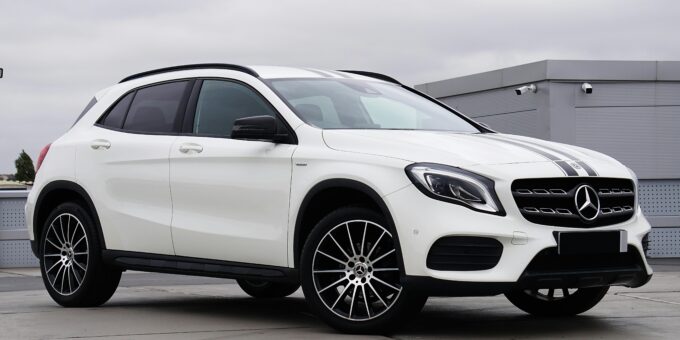
Choosing between a compact SUV and a full-size SUV can be a tough decision, especially when both options have unique benefits that cater to different needs. Compact SUVs are known for their agility, fuel efficiency, and affordability, while full-size SUVs offer more space, towing capacity, and luxurious features.
To help you make an informed decision, this guide breaks down the key differences between compact and full-size SUVs, providing insights into which option might best suit your lifestyle, budget, and driving preferences.
What Is a Compact SUV?
A compact SUV is a smaller version of the traditional SUV, designed to combine the benefits of a sedan with the practicality of an SUV.
Key Features:
- Seating for 5 passengers.
- Smaller footprint for better maneuverability.
- More affordable starting price compared to larger SUVs.
- Improved fuel efficiency.
Popular Compact SUVs:
- Toyota RAV4
- Honda CR-V
- Mazda CX-5
- Subaru Forester
Compact SUVs are ideal for city drivers, small families, and anyone looking for a balance between efficiency and functionality.
What Is a Full-Size SUV?
Full-size SUVs are large, powerful vehicles designed for maximum space, comfort, and utility.
Key Features:
- Seating for 7–9 passengers.
- Spacious interiors with ample legroom and cargo space.
- High towing and hauling capacity.
- Often come with luxurious features and premium trims.
Popular Full-Size SUVs:
- Chevrolet Tahoe
- Ford Expedition
- Toyota Sequoia
- GMC Yukon
Full-size SUVs are a great choice for large families, adventurers, or anyone needing a vehicle capable of heavy-duty tasks.
Size and Dimensions Comparison
The primary difference between compact and full-size SUVs is size.
- Compact SUVs: Typically 14–16 feet in length, making them easier to park and maneuver in tight spaces.
- Full-Size SUVs: Range from 17–19 feet in length, with a taller and wider stance, offering significantly more interior and cargo space.
If you frequently drive in urban areas with limited parking, a compact SUV is more practical. However, for road trips or large families, a full-size SUV’s spaciousness is invaluable.
Passenger Capacity
- Compact SUVs: Usually seat up to 5 passengers. Rear seats may feel cramped for adults, but they are ideal for children or short trips.
- Full-Size SUVs: Offer seating for 7–9 passengers, with third-row seating and extra legroom for longer journeys.
If you need extra seating or frequently travel with a full car, a full-size SUV is the better choice.
Performance and Driving Dynamics
Compact SUVs tend to feel sportier and more agile due to their lighter weight.
- Compact SUVs: Easier to drive, with responsive handling and better acceleration for urban environments.
- Full-Size SUVs: Prioritize power and stability, especially on highways or off-road trails, but can feel bulky in tight city spaces.
Fuel Efficiency and Running Costs
Fuel economy is a major advantage of compact SUVs:
- Compact SUVs: Average 25–35 mpg, making them more fuel-efficient and budget-friendly.
- Full-Size SUVs: Average 15–20 mpg due to their larger engines and heavier weight.
For drivers prioritizing savings at the pump, compact SUVs are the clear winner.
Towing and Hauling Capacity
If towing is a priority, full-size SUVs shine:
- Compact SUVs: Can tow light loads (1,500–3,500 lbs), such as small trailers or jet skis.
- Full-Size SUVs: Designed for heavy-duty towing, with capacities of 7,000–9,000 lbs, perfect for boats or campers.
Price Differences
Compact SUVs are generally more affordable than their full-size counterparts.
- Compact SUVs: Starting prices range from $25,000–$35,000.
- Full-Size SUVs: Starting prices range from $50,000–$70,000, with premium trims exceeding $100,000.
If budget is a concern, compact SUVs are the more economical option.
Urban vs. Rural Driving
- Urban Drivers: Compact SUVs are easier to park, navigate traffic, and save on fuel.
- Rural/Off-Road Drivers: Full-size SUVs handle rugged terrains better and offer greater cargo space for outdoor activities.
Technology and Features
Both compact and full-size SUVs come with advanced technology, but full-size models often include more luxurious features:
- Compact SUVs: Standard safety features like adaptive cruise control and Apple CarPlay/Android Auto.
- Full-Size SUVs: Premium options like advanced infotainment systems, massaging seats, and panoramic sunroofs.
When to Choose a Compact SUV
Choose a compact SUV if:
- You drive primarily in cities or urban areas.
- You want better fuel efficiency.
- You’re on a tighter budget.
- You need a car for light-duty tasks and daily commuting.
When to Choose a Full-Size SUV
Choose a full-size SUV if:
- You have a large family or need to seat more than 5 passengers.
- You require towing capabilities for heavy loads.
- You prioritize spaciousness and luxury.
- You frequently travel long distances or drive off-road.
FAQs About Choosing Between Compact and Full-Size SUVs
Can a compact SUV handle off-road driving?
Yes, many compact SUVs like the Subaru Forester or Toyota RAV4 have AWD options for light off-roading.
Are full-size SUVs difficult to park?
Full-size SUVs can be challenging to park in tight spaces, but features like parking sensors and cameras help.
Which is better for fuel efficiency?
Compact SUVs are significantly more fuel-efficient than full-size SUVs.
Deciding between a compact and full-size SUV depends on your specific needs, budget, and driving habits. Compact SUVs offer excellent fuel efficiency, affordability, and practicality for city driving, while full-size SUVs provide unmatched space, towing capacity, and luxury for larger families or adventurous lifestyles.
By carefully considering your priorities and weighing the pros and cons, you can choose the SUV that fits your life best. Happy car shopping!